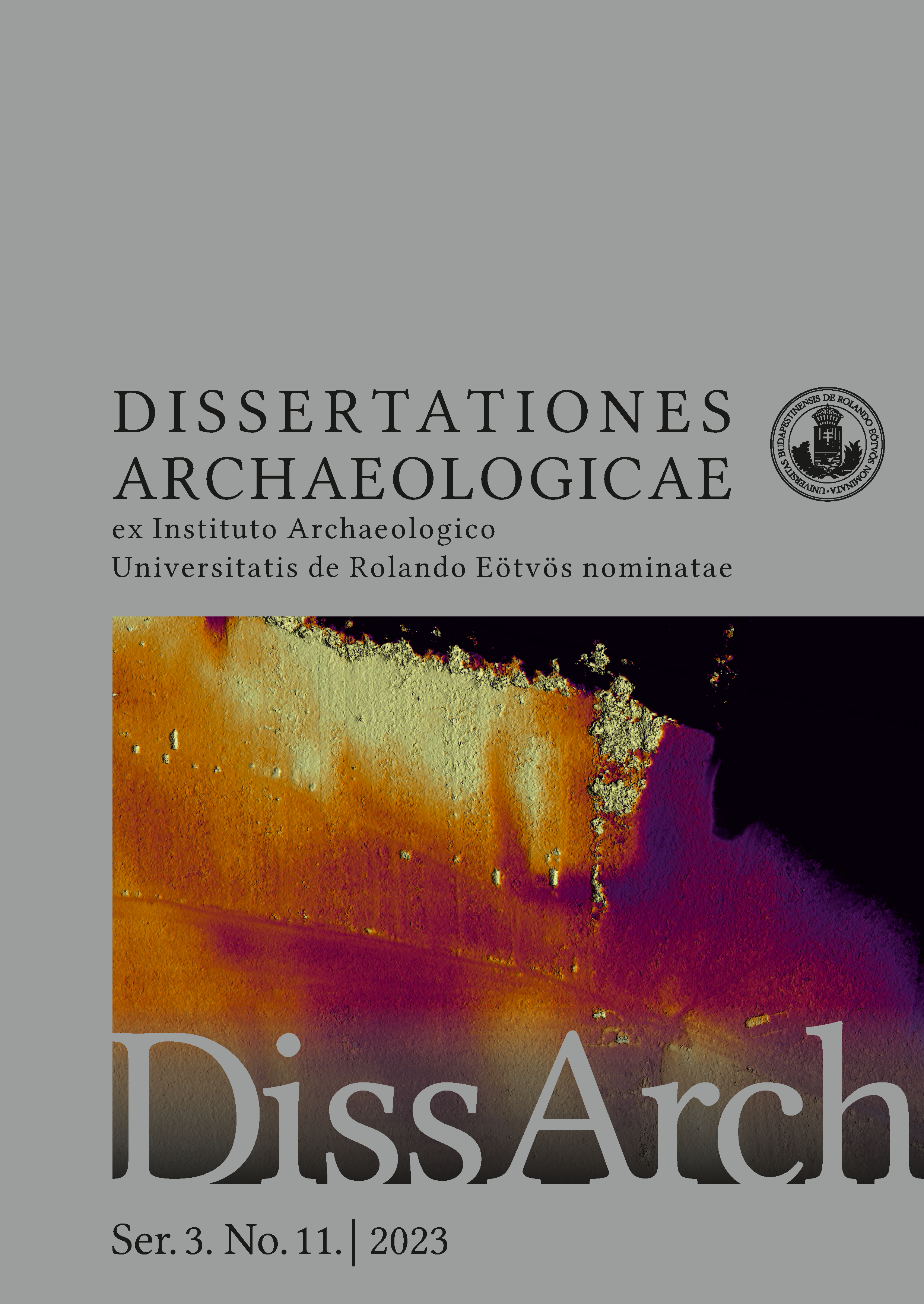Published 2024-03-26
Keywords
- Looted hoard,
- Illitic Antiquities Trade,
- Late Bronze Age (Ha B1),
- Carpathian Basin,
- typo-chronology
How to Cite
Abstract
The study details a looted hoard seized near the village of Vaja by the Mátészalka Police during a night of police control. According to the person who smuggled the finds, the findings were discovered in the ‘attic of a house in Budapest, during garbage disposal’. This obvious lie can be easily refuted by the results of the typo-chronological analysis of the objects. The seized finds comprise sword blades, spearheads, a knife, socketed axes and chisels, sickles, bracelets, metal vessel parts, metal lumps, and some unidentifiable fragments. Except for a few supra-regional types (a Vadena-type knife and some Kelčice-type bracelets), the style of these artefacts matches the bronze products often deposited in Hajdúböszörmény-type (Ha B1) hoards in the east Carpathian Basin. The concentration of stylistically close analogies in the territory of Hungary and the presence of typologically identical finds in the assemblage support the previous hypothesis that they were indeed looted somewhere in ‘Szabolcs-Szatmár-Bereg County’. A plausible findspot can be located in the northern and central areas of the county, such as the zone between Nyírmada, Mátészalka, Kántorjánosi, and Vaja, the area where the police action took place.


